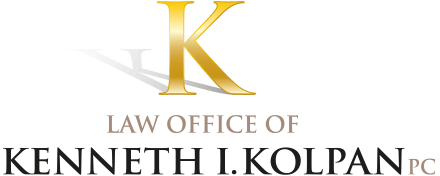Can a Physician Be Held Liable for Certifying a Person with a Seizure History to Drive?
Kenneth I. Kolpan, JD (Editor)
One of the serious late consequences of a head injury is the development of seizures. Jennett notes that 5% of all head injury patients develop late traumatic epilepsy, but the incidence of epilepsy is three times greater in individuals with severe head injuries. The risk of developing seizures continues for at least ten years, and is significant if a seizure occurred shortly after the injury. As a result, patients are often placed on anticonvulsant medication to control the seizures. If their seizures are successfully controlled over time, many of these patients will ask their physicians to certify that they are fit to drive an automobile. Independence and reintegration in to community must be done without exposing one to legal risk.
In many states, such as Ohio physicians must certify to the state division of motor vehicles that an epileptic person's seizures are under control with medication and that the person is now fit to drive. However, since past control of seizures cannot assure that seizures will not occur again, it was inevitable that an automobile accident would take place as a result of an epileptic seizure, and that the certifying physician would be sued.
On October 14, 1984, Deborah A. Weidrick died in an automobile accident involving a car driven by William Korsmo. The accident occurred when Korsmo had an epileptic seizure.
Suit was brought on behalf of the Weidrick estate against Korsmo's physician and the physician's professional association. Korsmo's physician had previously certified that Korsmo was fit to drive because his seizures were controlled continuously with medication. Relying on the physician's certification, the state division of motor vehicles issued a license to Korsmo. A lower court dismissed the lawsuit. However, on appeal, the Court of Appeals of Ohio, Scioto County, ruled in 1987 that Korsmo's physician could be sued for negligence in certifying that Korsmo's seizures were adequately controlled, and that he was fit to drive. It then became the plaintiffs burden to prove that the physician was in fact negligent in providing the certification.
The Ohio case does not mean that the certifying physician is liable every time there is an automobile accident because of a seizure. Rather, the court's decision reminds physicians that they must exercise due care in completing such forms to make sure there are facts to substantiate the certification. Future cases will look at whether the certifying physician has a duty to the injured plaintiff, and whether the physician breached that duty. The California often quoted Tarasoff may provide some guidance though the case involved a psychiatrist's duty to warn intended victims of a patient's threats of violence.
Efforts to rehabilitate patients with head injuries have resulted in many innovative programs that return these people to the community and maximize their independence. Many of these programs include driver retraining and the eventual use of an automobile. The Ohio decision should not alter these rehabilitation programs, but should make the physician who provides medical clearance for these patients exercise care in doing so.
REFERENCES
1. Jennett 13. Post-traumatic epilepsy, in Rosenthal M, Griffith E, Bond MR, et at (eds): Rehabilitation of the Head Injured Adult. Philadelphia, FA Davis, pp 119-124.
2. R.C. 4507.08 (B).
3. Krejci v. Akron Pediatric Neurology Inc, 511 NE2d 129 (Ohio, 1987).
 Boston Brain Injury Lawyer Kenneth I. Kolpan Home
Boston Brain Injury Lawyer Kenneth I. Kolpan Home







